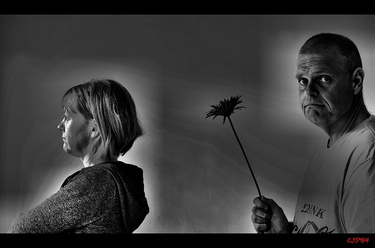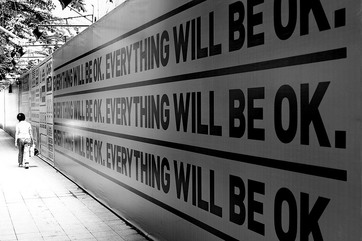Repairing your relationship after a big incident is critical in moving forward and growing as a couple. Repairing in this post refers to a pattern of interaction that processes, acknowledges, and resolves the feelings and experience of both parties involved in a regrettable incident. Regrettable incident will be a general term used to encompass anything regrettable arising in your relationship and thus it can be defined differently for every couple. Many times couples fight and fight and fight some more to get their point across, but very little energy goes into making amends. So the following are some steps that you and your partner can take to process, acknowledge, and resolve a regrettable incident in your relationship. Prior to using these steps, it's very important that you and your partner are calm and open to listening to each other. If you or your partner does not feel this way, it would be better to wait for another time to use these steps.
1) Take turns sharing your feelings and experience of what happened. The "truth" is subjective. Unless you used a camera to record the whole incident, all you have are your memories of what happened. And most likely, you both have different versions. This is not a police investigation so you both are right in your account of what happened.
2) Acknowledge your partner's feelings and experience of what happened. Listen without judgement to what your partner experienced and felt. This is such an important part of growing as a couple because it's about validating each other. You don't need to agree with your partner in order to validate that their feelings are theirs. In this step you can say, "I can see why you would feel....." or "So you felt.... when this happened".
3) Take responsibility for your part in the incident. Probably the hardest step here because this is hard to do. You aren't allowed to correct your partner's faults and you're not allowed to say "I take responsibility for not doing.....". Taking responsibility is about looking at what we did or said, so we can't take responsibility for the lack of our behavior. For example, "I take responsibility for yelling" is good vs. "I take responsibility for not holding my temper" is no good.
4) Make a plan for how to better respond in the future. Also a hard thing to do, but repairing does not sum up to much without this step. This is the corrective step and the step that goes beyond "I'm sorry". This only needs to be one thing you will do differently next time, but it conveys remorse for the incident and a commitment to the relationship.
Relationships will naturally have their highs and lows. Hopefully the highs and lows are staggered and grow further apart as the relationship progresses. Most regrettable incidents can be discussed and resolved, and can help your relationship become stronger. However, there are times when some incidents cannot be resolved on your own, and in those cases professional help may be needed. For the most part, you now have a few more tools to keep your relationship strong.




 RSS Feed
RSS Feed
